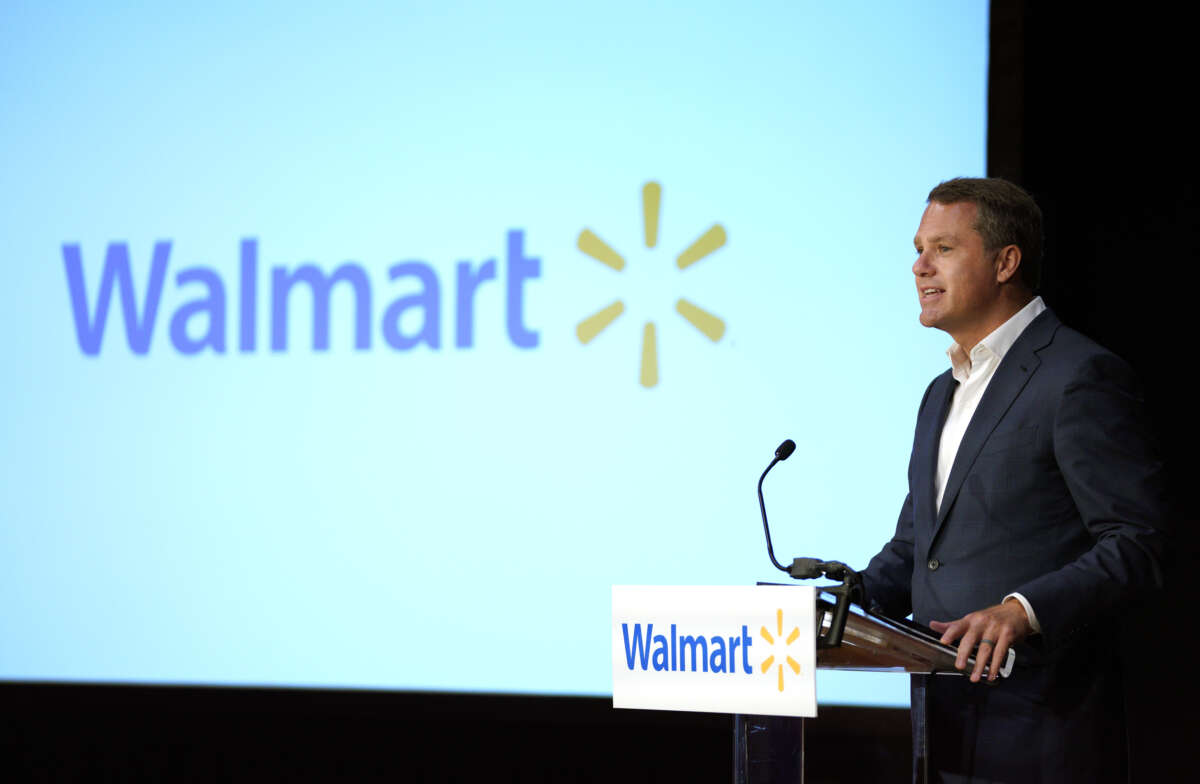Adouble standard in our tax code for government retirement subsidies gives preferential treatment to those who need it least — wealthy corporate executives.
Ordinary employees with access to 401(k) plans face strict limits on the amounts they can set aside, tax-free, for their golden years. Most senior executives of large corporations, on the other hand, have unlimited tax-deferred compensation accounts.
Often called “top hat” plans, these special executive retirement funds offer the rich one more way to avoid paying their fair share of taxes.
Retiring CEOs Get Huge Tax Advantages
Our new report from the Institute for Policy Studies and Jobs With Justice finds that the top five executives at S&P 500 firms held a combined $8.9 billion in their special tax-deferred accounts at the end of 2021. These funds can be invested and grow, tax-free, until executives withdraw the money.
We estimate that an executive who sets aside $1 million in a deferred account every year for seven years and earns average returns would wind up with $1.3 million more in after-tax earnings than if he’d paid taxes every year on that income and related capital gains.
What kind of executives are bringing home the biggest retirement checks? Are their workers similarly well-provided for? Our findings are eye-popping:
Low-Wage Employers
Low-wage employers have among the largest deferred compensation accounts while many of their workers can’t even afford to contribute to their 401(k) plans. The report lists 22 companies where executives have so much money in their deferred compensation funds that they can expect to receive monthly retirement checks larger than their workers’ median annual pay.
Walmart CEO Doug McMillon held more than $169 million in his deferred compensation account at the end of 2022 — enough to generate a monthly retirement check worth more than $1 million. The retail giant offers employees 401(k) plans with matching funds, but 46 percent of eligible participants have zero balances.
Median pay at Walmart is $27,136, meaning half of the company’s 2.1 million employees make less than that amount.
Hyatt Hotels Board Chair and billionaire Thomas Pritzker is sheltering $91 million from taxes in his deferred pot, while 36 percent of the hotel chain’s employees have not been able to set aside any funds in their 401(k) accounts. Half of Hyatt employees make less than $40,395.
A majority (53 percent) of eligible participants in Home Depot’s 401(k) plan have zero balances. Meanwhile, former CEO and current Board Chair Craig Menear is sitting on $14.8 million in deferred compensation — enough to generate a monthly retirement check three times larger than the company’s median worker pay of just $30,100.
Real Estate Executives
As ordinary families struggle with rising housing costs, real estate executives are sitting on massive tax-sheltered funds. Paul Saville, Executive Chairman of NVR, the owner of Ryan Homes, has the fattest “top hat” account in the S&P 500.
The $488 million in Saville’s account at the end of 2022 is enough to generate a $3 million retirement check every month for the rest of his life. That’s 1,514 times as much as a typical American retiree could expect to receive every month, based on the average U.S. Social Security benefit and median 401(k) accounts.
Two leading rental apartment corporations, Camden Property Trust and AvalonBay Communities, are also near the top of the “top hat” list. At Camden, two executives have more than $80 million each in their deferred accounts while the Executive Chair of AvalonBay has $23 million.
Health Care Executives
Buoyed by taxpayer investments, health care executives have also amassed huge deferred compensation accounts. The CEO of Centene, the nation’s largest Medicaid provider, had the second-largest “top hat” plan in the S&P 500 in 2022, valued at $328 million.
Thanks in part to Covid vaccine profits, Pfizer CEO Albert Bourla enjoyed a 37 percent increase in the value of his deferred compensation account over the past year, from $29.5 million to $44.4 million at the end of 2022.
Let’s Narrow the Retirement Divide
Corporate executives should be subject to the same rules that govern the retirement assets of the people they employ. Getting rid of the current double standard should be a no-brainer and in fact, in the past five years, both Democrats and Republicans have introduced proposals to do so.
But getting one of these proposals into law is just one of many steps needed to ensure a dignified retirement for all. A web of tax and labor policies, inter-woven with racial and gender discrimination, has protected and favored the wealthy white men who run most of our country’s large corporations.
Perhaps the most important step is to expand Social Security. Nationwide, 42 percent of Americans ages 56-64 have zero retirement account savings, meaning they will likely have to rely almost entirely on this public benefit program, which pays an average monthly benefit of $1,784 as of March 2023.
Funding for Social Security expansion could come from lifting the wage cap on payroll taxes so that CEOs and other high earners pay roughly the same share of their total income into the Social Security fund as ordinary workers. Under the current wage cap of $160,200, people who make more than $1 million a year stop paying payroll taxes in February, while most working people pay all year.
In the richest country in the world, everyone should be able to look forward to financial security in their golden years.
Media that fights fascism
Truthout is funded almost entirely by readers — that’s why we can speak truth to power and cut against the mainstream narrative. But independent journalists at Truthout face mounting political repression under Trump.
We rely on your support to survive McCarthyist censorship. Please make a tax-deductible one-time or monthly donation.
